There are times when we’re recording an online Assembly or bitesize video or dedicated podcast episode and we just think OMG EVERYONE IS GOING TO ABSOLUTELY LOVE THIS.
And that’s the case with this interview with consultant and founding director of About Consulting Group, Jon Dunckley.
Because this podcast is all about neurodiversity.
(Its origins lie in this comment by Planner12 posted at The Big Tent last year.)
And, as Jon (who is autistic) says very early on in the episode, neurodiversity matters to me, you and everyone.
After all, we each have a way of thinking that’s unique to us. We all occupy our place in a neurodiverse world.
But if the way we think is plotted on a spectrum, most of us would be considered ‘neurotypical’.
Yet plenty of us – at least 1 in 10 in the UK – function, learn and process information differently from the neurotypical.
Neurodifference and work
We may be neurodifferent but, despite thinking differently, we’re expected to adapt and succeed in a world that’s geared towards neurotypical people.
And that’s why we thought Planner12’s question – and the thread that their comment sparked – was such a great starting point to consider neurodiversity and its consequences personally and professionally whether we’re neurodivergent or neurotypical.
Because even if we’re not neurodifferent ourselves, people we work with will be. Either way, what do we need to consider about day-to-day working life so we each get the chance to thrive, contribute and gain fulfilment from work?
What do we mean by neurodifferent? What conditions are considered neurodifferent? If you’re neurodifferent, do you mention it to your employer? Do you need a diagnosis? What’s your approach to studying and sitting exams? How should you adapt your leadership style for a range of neurodifferent conditions? And how does your condition influence the way you manage your team?
Invaluable insights and practical tips
In just under an hour, host Richard Allum and Jon explore just about everything you could possibly want to cover.
Expect talk of autism, ADHD, dyspraxia, dyscalculia, dyslexia and dysgraphia. Learn about TIC syndrome, the ‘Pygmalion effect’, why people with ‘spiky profiles’ are good for business. Plus why job adverts should (a) encourage applicants with spiky profiles and (b) be really clear about what a job will actually involve.
And there’s so much more.
In fact, this is an area we’re going to explore more – and not leave it too long before we do. So if you think of anything that the Assembly could explore once you’ve listened please get in touch and tell us what you think.
Now, tuck in to this latest episode. We think you’re going to love it.
Listen to the Assembly
A few of links mentioned by Jon during the episode
British Dyslexia Association: Dyslexia-friendly style guide
The Neurodiverse Workplace by Victoria Honeybourne
Think Human Business Writing course
BTS podcast: Neurodiversity and studying for regulated exams
PFS Power: Working with vulnerable clients
Cornell note-taking system (YouTube video)
Online Assembly: Design principles for reports
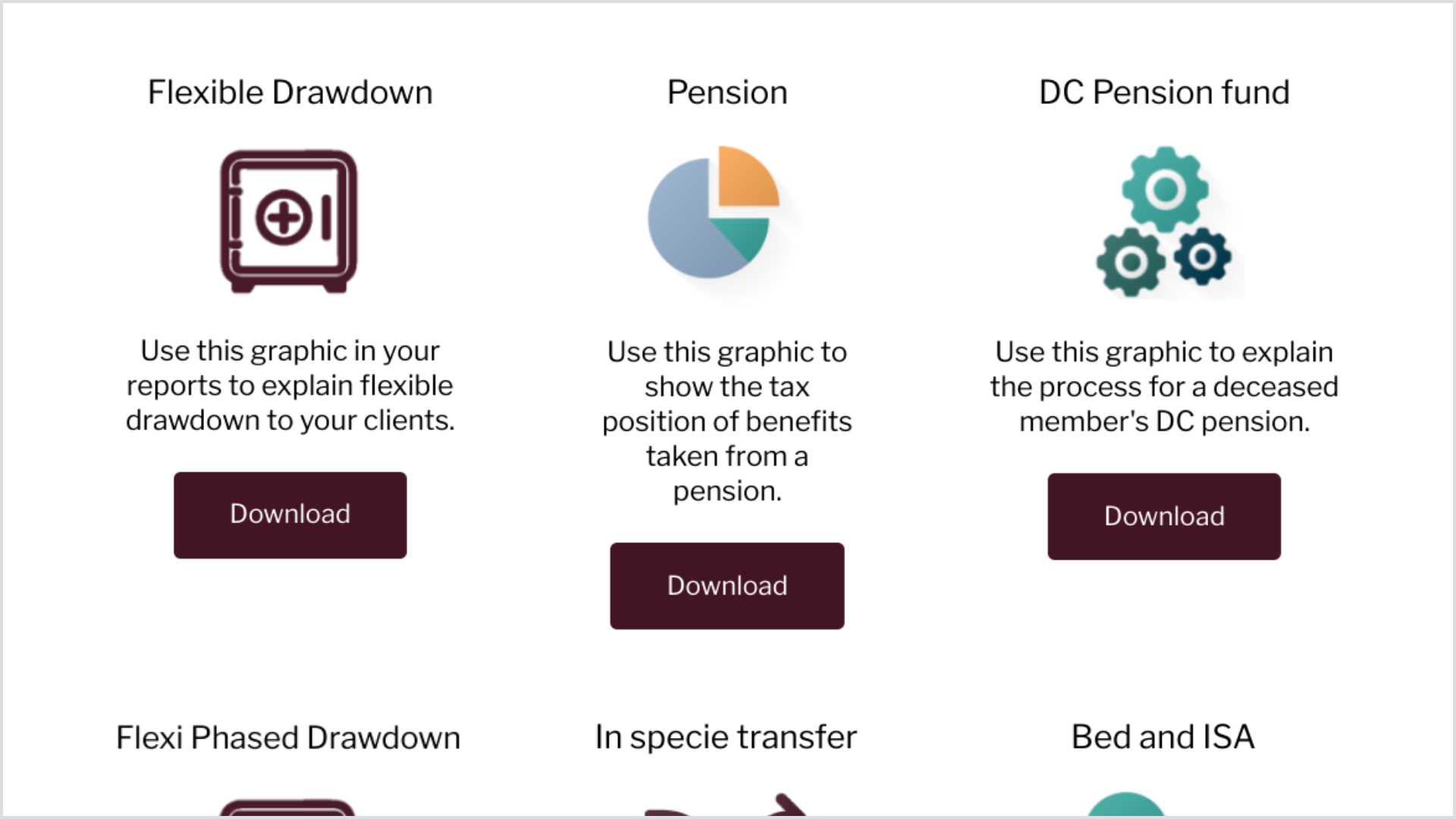
It’s been just over a year since we teamed up with Assembly supporter, Parmenion, and announced the release of the first visuals in our ‘snippet collection’ – a selection of simple free-to-download graphics for use in your reports and documents.
Our big ambition was for paraplanners to suggest ideas that could be turned into custom-made visuals that would help clients understand complex report content more easily. What’s more, you get a say in which idea gets transformed into a report graphic by voting for your favourite idea.
As a result of that, since April 2022, Parmenion have published a total of seven report graphics. These include illustrations for flexi phased drawdown, in specie transfer, bed and ISA, flexible drawdown, pension, DC pension fund and portfolio drift.
(You: That’s all very interesting but why are you telling me all this?)
Because now it’s time to tell us which of the shortlisted concepts picked by your paraplanning peers will become our next snippet.
But hurry because you’ve only got until 4 August 2023 until this round of voting closes!
The good news is that we’ve made voting very easy. In fact, you can complete the survey right here and right now…
Report graphics are available in PNG, JPG and SVG formats so are easy to download, resize and recolour.
In the meantime, why not help yourself to our snippets right now? Just head over to the Snippet Collection and you could soon discover a visual that could bring an idea to life for a client.
We recently teamed up with friend of the Assembly, Steve Sayer of Utmost International, to record a three-part series of special Assemblies. Each one-hour session explores the issues affecting tax and tax planning, and offers practical ideas that paraplanners can consider for their firms’ clients.
In the first part of the series, Steve looked back at the last two budgets – the ‘mini-budget’ in September 2022 and spring Budget in March 2023 – to demonstrate the cumulative effect of ‘stealth’ tax rises and explore strategies to alleviate their effects.
In the second episode, he explored the flexibility of loan trusts and their potential for inheritance tax planning – especially in the wake of the freezes in nil rate and residence nil rate bands announced by the Chancellor of the Exchequer earlier this year.
In the final part of the trilogy, Steve considers discounted gift trusts as an alternative to loan trusts for inheritance tax planning.
In sharp contrast to loan trusts, the decision to execute a gift trust brings no flexibility but their appeal is the immediate inheritance tax advantages.
Whether they’re the right vehicle will depend on a number of planning considerations such as the ages of the applicants and the types of gift trust.
During his talk, Steve looks at the difference between absolute trusts and discretionary trusts, touches on issues like the consequences of pre-2006 flexible power of appointment arrangements, making gifts and insurance policies.
In the slides that you can download below, you’ll find two case studies:
Case study No 1: explores the issues a couple might consider when choosing between a joint settlor or single settlor discounted gift trust.
Case study No 2: a client who wants to invest in a discounted gift trust but wants to be able to secure a fixed level of withdrawals. By combining discretionary and absolute trusts they’re able to achieve their objective without exceeding their nil rate band.
Steve’s talk is ideal if you’re handling cases where clients are weighing up planning opportunities for inheritance tax, this is the special Assembly for you.
We’ve ‘chapterised’ the video above so you can navigate the video however you’d like – and provided the slide number/s too for easy reference.
To download a PDF version of Steve’s slidedeck, just tap the link below. You can also download a CPD certificate as a record of viewing the recording, and links to other resources mentioned during the recording.
CPD, downloads and links
Slides: Discounted gift trusts (opens a PDF in a new browser tab)
We recently teamed up with friend of the Assembly, Steve Sayer of Utmost International, to record a three-part series of special Assemblies. Each one-hour session explores the issues affecting tax and tax planning, and offers practical ideas that paraplanners can consider for their firms’ clients.
In the first part of the series, Steve looked back at the last two budgets – the ‘mini-budget’ in September 2022 and spring Budget in March 2023 – to demonstrate the cumulative effect of ‘stealth’ tax rises and explore strategies to alleviate their effects.
In this episode, Steve explores the potential for loan trusts to feature in inheritance tax planning – especially in the wake of the freezes in nil rate and residence nil rate bands announced by the Chancellor of the Exchequer earlier this year.
Perhaps typecast as a bit of a ‘slow burn’ option in the past, Steve reveals the surprising flexibility that loan trusts offer clients. For instance, offering the ability to begin inheritance tax planning but not cutting off access to cash.
While the inheritance tax advantages of a loan trust may not be so significant initially, the growth of the funds outside the estate over time can accumulate to a substantial amount, providing future planning flexibility.
If you’re handling cases where clients are weighing up planning opportunities for inheritance tax, this is the special Assembly for you.
We’ve ‘chapterised’ the video above so you can navigate the video however you’d like – and provided the slide number/s too for easy reference.
To download a PDF version of Steve’s slidedeck, just tap the link below. You can also download a CPD certificate as a record of viewing the recording, and links to other resources mentioned during the recording.
CPD, downloads and links
Slides: Planning with loan trusts (opens a PDF in a new browser tab)

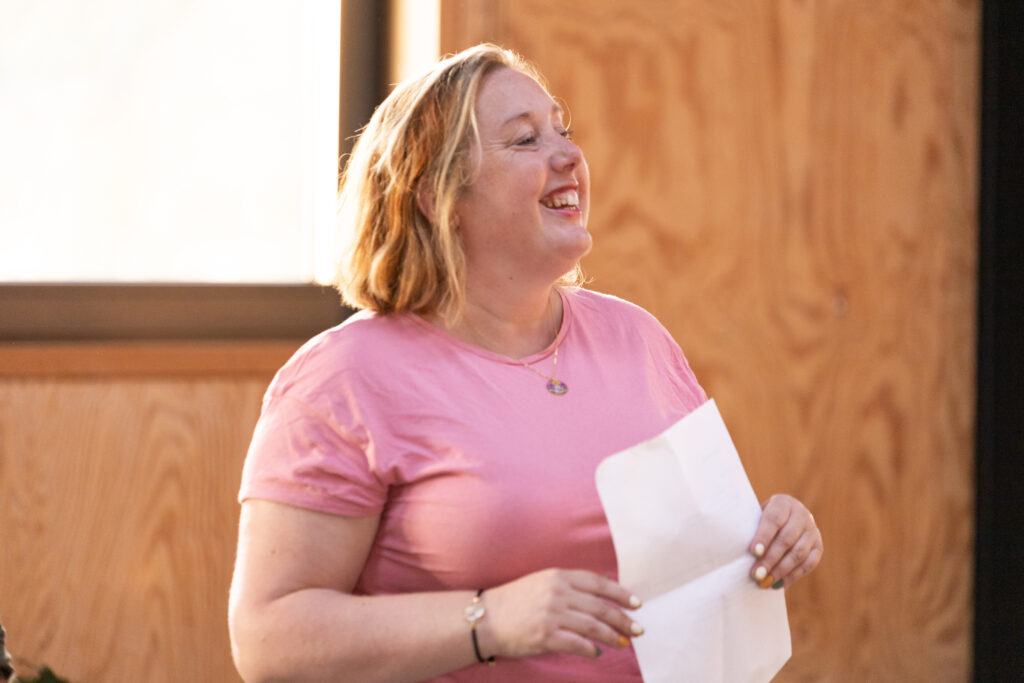
We’re really pleased to announce that Sarah Lees and Sam Tonks will host the Paraplanners’ Assembly’s Big Day Out on 14 September 2023.
Sarah and Sam – along with a team of volunteer group hosts – will welcome as many as 100 participants to the annual gathering at FarmED near Chipping Norton.
This will be Sarah’s second time hosting the annual gathering of paraplanners – widely regarded as the world’s greatest paraplanning event (that’s held at a farm or farm-related location).
Sarah, who was crowned CISI’s Paraplanner of the Year in 2021, is a serial participant in the national Assembly.
In fact, this year’s Big Day Out will be the SEVENTH national event that the senior paraplanner from Mazars has taken part in during her 10-year paraplanning career – missing only the 2017 edition since 2016.
In marked contrast, for Succession Wealth paraplanner trainer Sam, the Big Day Out will mark a couple of firsts.
(1) It’s the 2020 Money Marketing Award Best Paraplanner winner’s debut as host of the national event; and (2) despite being a guest at online Assemblies, a participant (and group leader?) at the Big Day Out of this World and Big Day Out (In), PLUS organiser of this November’s Assembly In The Middle, it’s the FIRST TIME Sam will have attended the national gathering IN PERSON!
We know, right?! 🤯
Sam’s debut continues the tradition of inviting paraplanners with the desire to do so, the chance to host Assembly events.
That practice started in 2017 when Caroline Stuart hosted the – then – national Powwow in Aynho, Northamptonshire. Between 2013 and 2016, Assembly co-founder, Richard Allum, had hosted all four national events. Becca Tuck put in a virtuoso performance as the solo host in 2019 and, in 2020, Becca was joined on the beach at Paraplanners Paradise by Jonny Stubbs for the Big Day Out (In). The following year – so that’s 2021 – Jonny and Caroline Singleton landed on Paraplanet for the Big Day Out of this World. Jonny returned to Earth in September 2022 to co-host the Big Day Out with Sarah Lees. (Don’t worry, we didn’t leave Caroline on Paraplanet!)
Don’t leave it too late to grab your ticket!
Secure your ticket NOW for THE BIG DAY OUT on 14 September 2023 and, if you’d like to join us, the BIG NIGHT IN from 7pm on 13 September.
The BIG DAY OUT costs £35. Tickets for THE BIG NIGHT IN cost £20. For full event details and to grab your ticket
Want to get involved in hosting or supporting Assembly events?
Then take a look at our pages on hosting an event, organising a local Assembly and volunteering. If you fancy a go, get in touch!
We recently teamed up with friend of the Assembly, Steve Sayer of Utmost Wealth International, to record a three-part series of special Assemblies. Each one-hour session explores the issues affecting tax and tax planning, and offers practical ideas that paraplanners can consider for their firms’ clients.
In the first part of the series, Steve takes a look back at the last two budgets – the ‘mini-budget’ in September 2022 and Spring Budget in March 2023 – to demonstrate the cumulative effect of ‘stealth’ tax rises and explore strategies to alleviate their effects.
During the hour-long talk he deals with changes in income tax, capital gains tax, corporation tax, and inheritance tax.
Just hit play (above) to watch here or watch it on Vimeo. Alternatively, you can listen to Steve because his talk is also the latest episode of our podcast.
We’ve ‘chapterised’ the video above so you can navigate the video however you’d like – and provided the slide number/s too for easy reference.
To download a PDF version of Steve’s slidedeck, just tap the link below. You can also download a CPD certificate as a record of viewing the recording, and links to other resources mentioned during the recording.
CPD, downloads and links
Slides: Post-April 2023 personal tax changes (opens a PDF in a new browser tab)
Top slicing relief: planning strategies – online Assembly, 16 November 2022 »
Talking top slicing relief – online Assembly, 29 June 2022 »
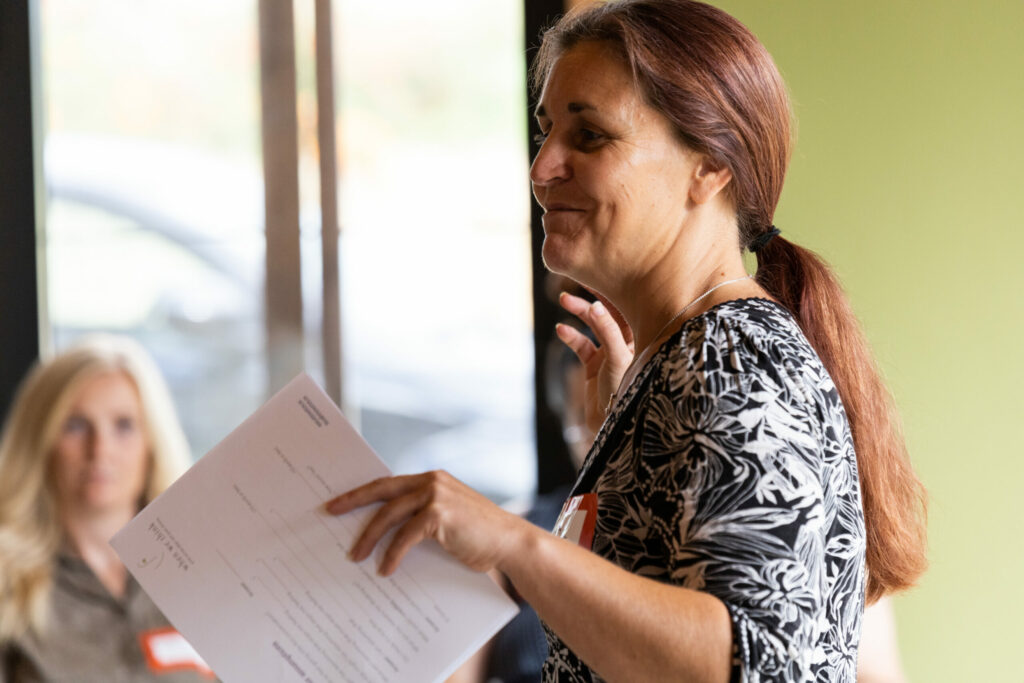
With a background that’s rich in paraplanning experience, Becca Timmins (pictured above at the Big Day Out 2022) is ideally placed to lead a session on personal development power-ups for paraplanners. But what’s in it for paraplanners – and the financial planning practices they work for?
What’s the one thing Becca Timmins wished she’d mastered when she started out as a paraplanner in 2003?
How to give feedback.
“I’ve been in an operations role since 2010, but was paraplanning for quite a long time before that, and I would have massively benefited from thinking about how to give feedback.”
“I’m not thinking about the kind of feedback you give to a team member as a manager – or vice versa – but the ‘the-information-you-gave-me-on-this-file-is-crap-and-this-is-why-I-need-it’ kind of feedback you needed to share with advisers. I just didn’t have those skills.”
These days, the coach and facilitator – and operations director of financial planning practice, Emery Little – recognises that the exchange of feedback relies on a vital quality that she would have loved to have been given techniques to practice earlier in her career too: “I wasn’t taught to listen. To REALLY listen. And that’s a skill that is massively valuable for giving and receiving feedback.”
“Take the crap file example. If I’m going to a planner and saying ‘this is a problem, the file isn’t good enough’ there’s a danger that all they hear is ‘there’s a compliance problem’ and the quality of the conversation is just doomed.”
“But if you can frame and share feedback constructively, and then sit back and really listen to what a planner says, more often than not you realise that you’re both trying to achieve very similar outcomes for clients but are just approaching it in different ways.”
“Paying attention to what people are actually saying and considering how to give feedback – both contribute massively to fostering understanding that results in healthier and happier working relationships.”

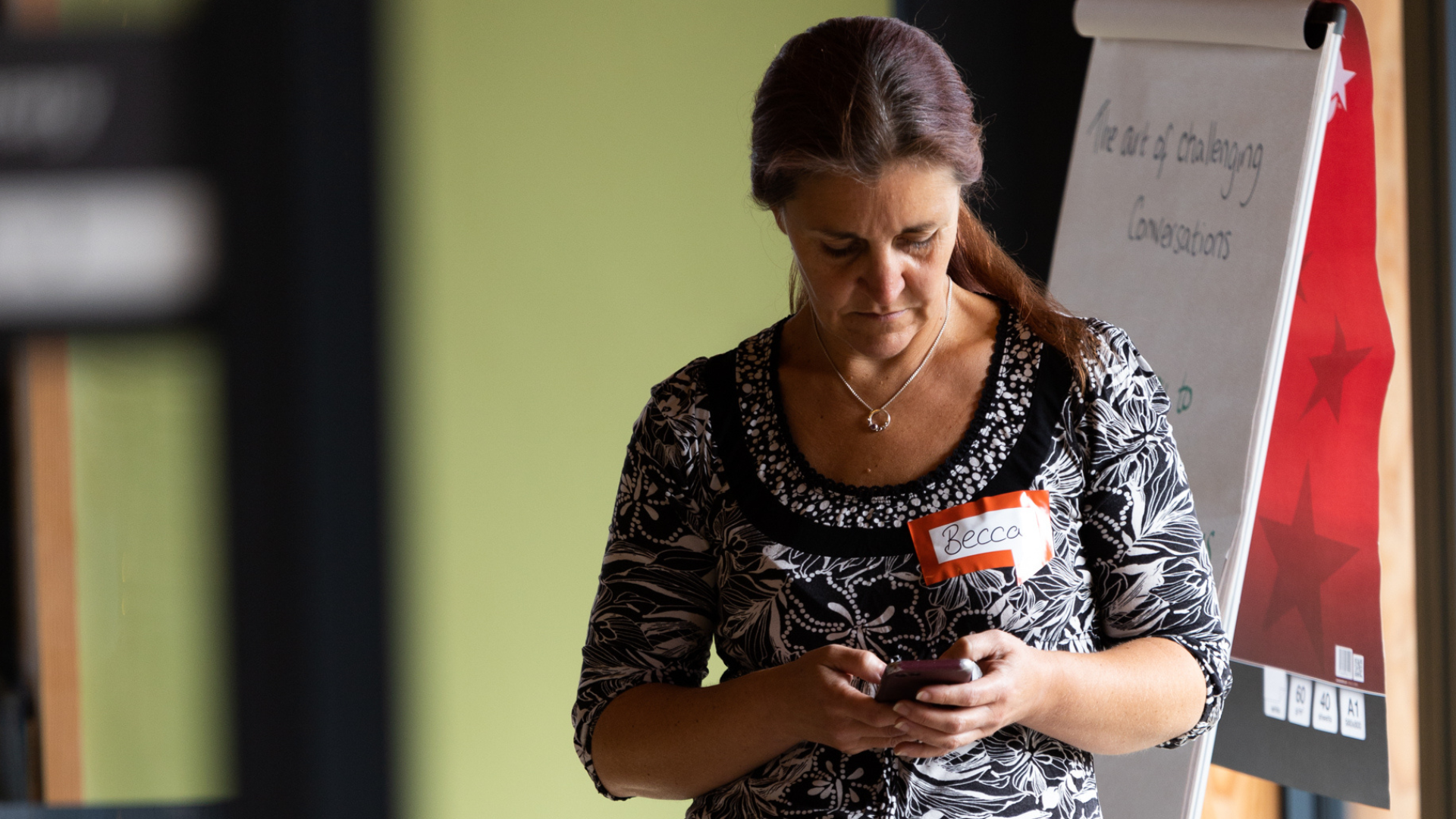
Giving feedback, learning to listen and another essential skill – time management – aren’t issues unique to Becca’s experience as a former paraplanner. They’re issues that have cropped up over the past year or so when Becca has been facilitating a small gathering of paraplanning team leaders for the Paraplanners’ Assembly.
And it’s the frequency with which they featured as a challenge for paraplanners during those team leader discussions that led us to invite Becca to develop a three-hour workshop – called ‘Personal development power-ups for paraplanners’ – that’s designed specifically to help paraplanners gain and practice those skills.
Made possible thanks to the support of Aegon, and taking place online, the workshop begins at 9:30am on 12 May 2023.
Despite being online the format will echo the interactive style of the workshop sessions that Becca ran at the Big Day Out in September 2022. (To see what paraplanners thought of those sessions, scroll down and take a look at the post-it comments pictured at the bottom of this page.)
As for the power-ups, here are three things – in Becca’s own words – that taking part in the workshop will offer you and the business you work for.
1. Give feedback confidently and listen effectively
“I often hear people say they’d like to be able to communicate better. Or I don’t feel heard. Or I don’t feel like I can get my point across very well. Or I don’t feel very well listened to. One of the things that I think people will walk away with is a way to frame feedback in a way that others can hear more easily and so listen in order to reach a better outcome that takes into account both people’s points of view.”
2. Take away practical tools to help manage your time
“Because paraplanners sit in the middle of the organisation – between clients, planners and administrators – they’re pushed and pulled in all three directions. It means they have many demands on their time and often it’s things that are important but not urgent.
Meanwhile, investing time to make things better in a way that will save everyone time – like fixing those report templates, for example – that’s the kind of investment of time that tends to slip.
I want people to walk away with a different way of thinking about time management because, for me, it all comes down to priorities: it’s not that I don’t have the time, it’s that I’m unable to prioritise my time in the right ways or in different ways. Take part and you’ll leave the session with tools to take and try out the next day – practical methods to distinguish between important and urgent tasks and how to prioritise them.”
3. Good for you at work – and good for the business you work for
Historically, I think there’s been a greater emphasis on acquisition of knowledge technically, what exams do you need to pass to be a paraplanner, how do you write better reports – that that sort of thing. Or, for administrators, go and see such-and-such a brand for a day to find out more about their platform.
But the more you and the business you work for looks after the whole person, the better they’re going to perform at work. When we learn to listen to each other better, then we can begin to talk in ways that other people will understand. For instance, as a paraplanner, if you talk about the outcomes for a client, and wanting to give a client a great service, a planner is far more likely to listen to you than if you come from a ‘well-the-file-check-says-that-the-file-needs-to-look-like-this’.
As an employer, if you’re giving people to chance to learn this stuff, giving them the space to learn, and investing time and money for this sort of training. you’re affecting the lives of the people who are working for you in a much bigger way than just what they can do for your clients.
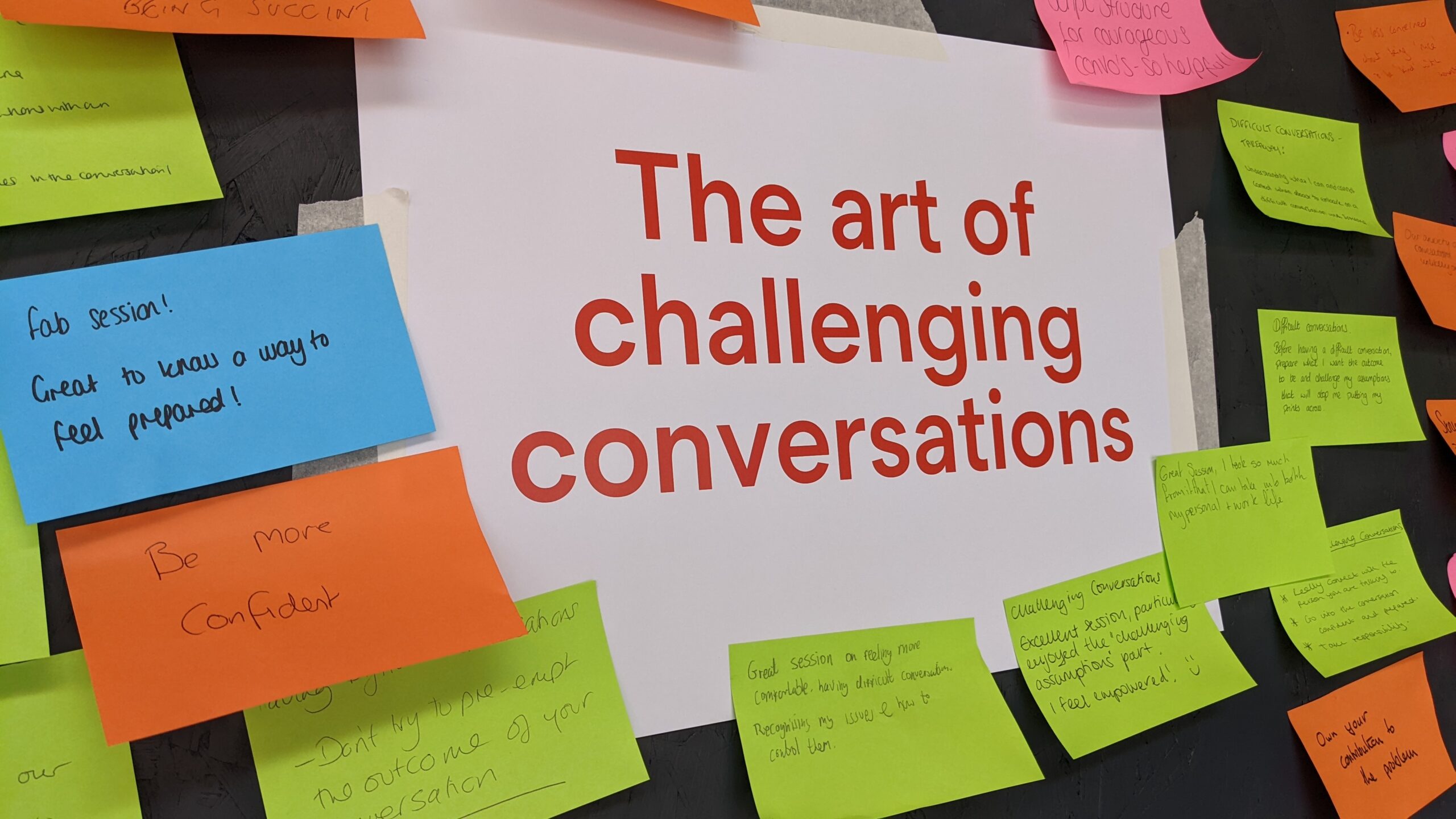
If you liked that, here are two things you can do right now which we think you might like too
Take part in the power-up workshop
If you’d like to join Becca at the Personal development power-ups for paraplanners – a 3-hour online workshop starting at 9:30am on 12 May 2023 – just tap the link.
» Book now
Meet up with other team leaders
Team leader? Then you can join our sessions too. But there’s a waiting list. To join it, tap the link and post a message at The Big Tent thread.
» Visit the thread
As paraplanners enter their busiest time of year, we invited Transact’s head of technical services, Brian Radbone, to share his top tips as we hurtle towards the 5 April tax year end deadline.
In just 13 minutes host, Richard Allum, and Brian cram in top tips covering pensions, income tax, ISAs, CGT, bonds and IHT.
Recorded on 2 March 2023
James Jones-Tinsley of Barnett Waddingham joins host, Richard Allum, for a second short video in which James translates old pensions jargon into something more understandable for today’s paraplanners.
Want to see Part One? Here’s the link: A plain English guide to old pensions jargon: Part One
If you haven’t already discovered it, when you explore our new Resources page, you can search more than 6,000 minutes of video content from our previous online Assemblies. These are the top five most popular videos between 1-31 January 2023 – that’s based on the total number of views.
1. Top slicing relief: Planning strategies
Steve Sayer from Utmost Group talks about financial planning approaches to top slicing relief. Steve offers tips on avoiding incurring trustee rates of tax on gains, explains when new money should top up an existing bond or go into a new one, and suggest how to plan for ongoing income.
2. Getting started with SSAS
Rachel Geary of Barnett Waddingham explores small self-administered schemes (SSAS) and what paraplanners need to know.
3. What’s the right order of tax on income?
Do you know the order in which income tax is applied to different sources? If not, this Assembly with Les Cameron of M&G Wealth is for you. Even if you think you do know, we’re sure you’ll leave this Assembly older – by 45 mins and 32 seconds – but wiser.
4. Get into the right headspace for tax year end
Facilitator Becca Timmins is joined by Kez Condy and Jo Parkes from Navigatus, Zoe Hitchcock from Crowe UK and Emery Little’s Satu Flynn to discuss how they were getting in the zone for 2023’s tax deadline.
5. A plain English guide to old pension jargon: part one
James Jones-Tinsley of Barnett Waddingham and Richard Allum pick their way through the potpourri of jargon associated with old pensions contracts. This video is so popular, we’ve just recorded a new episode which we’ll publish at the end of this month – February 2023.

